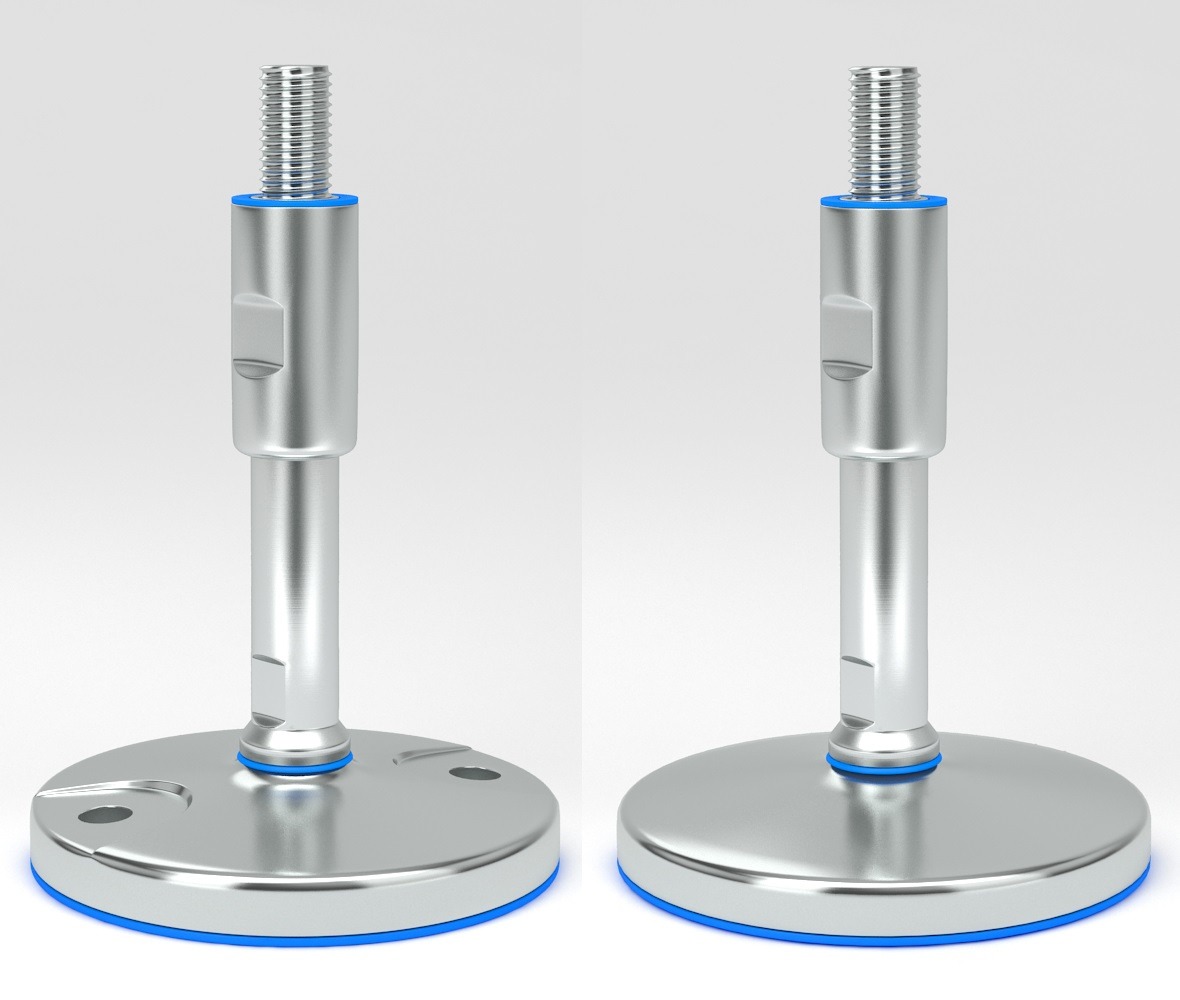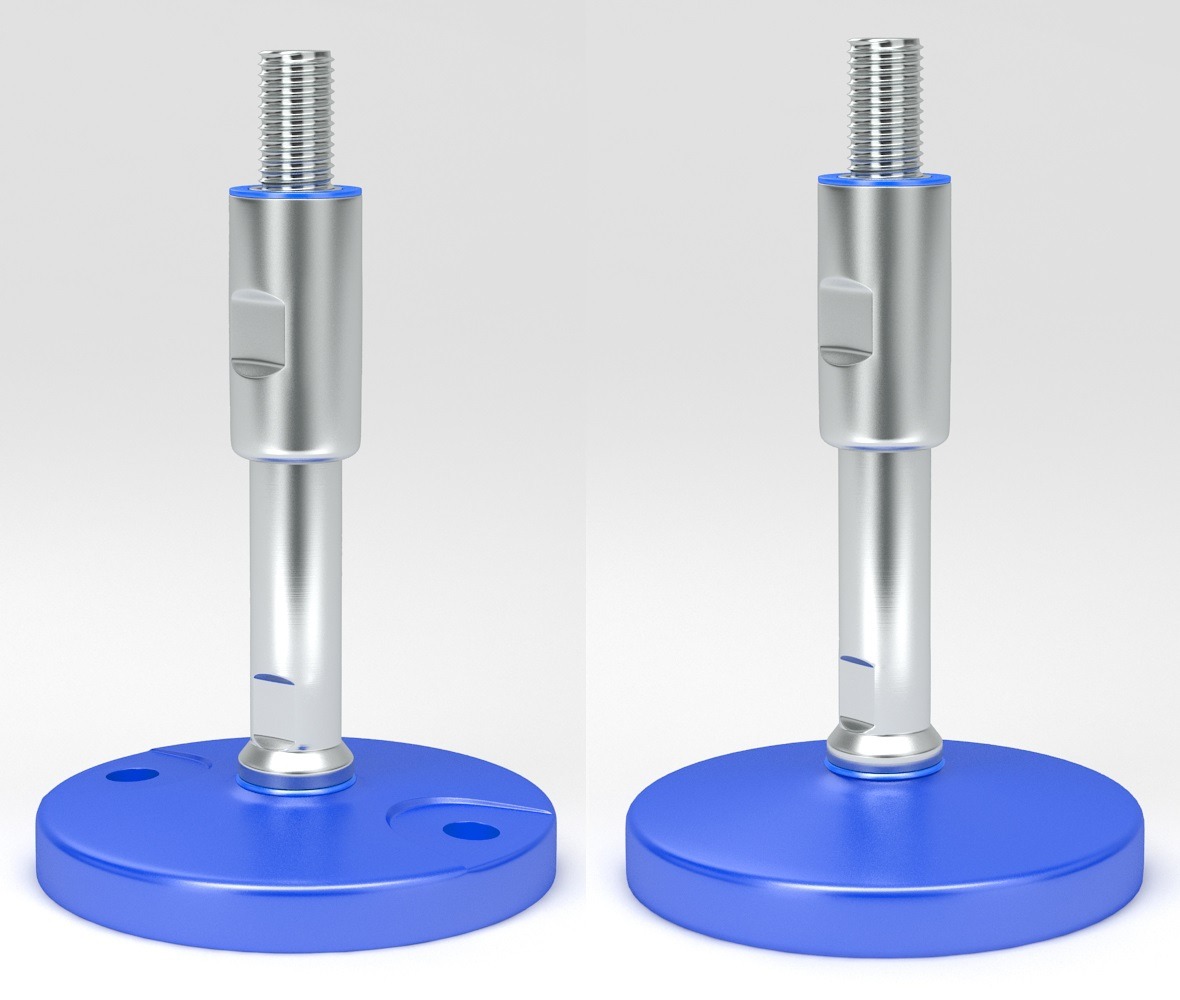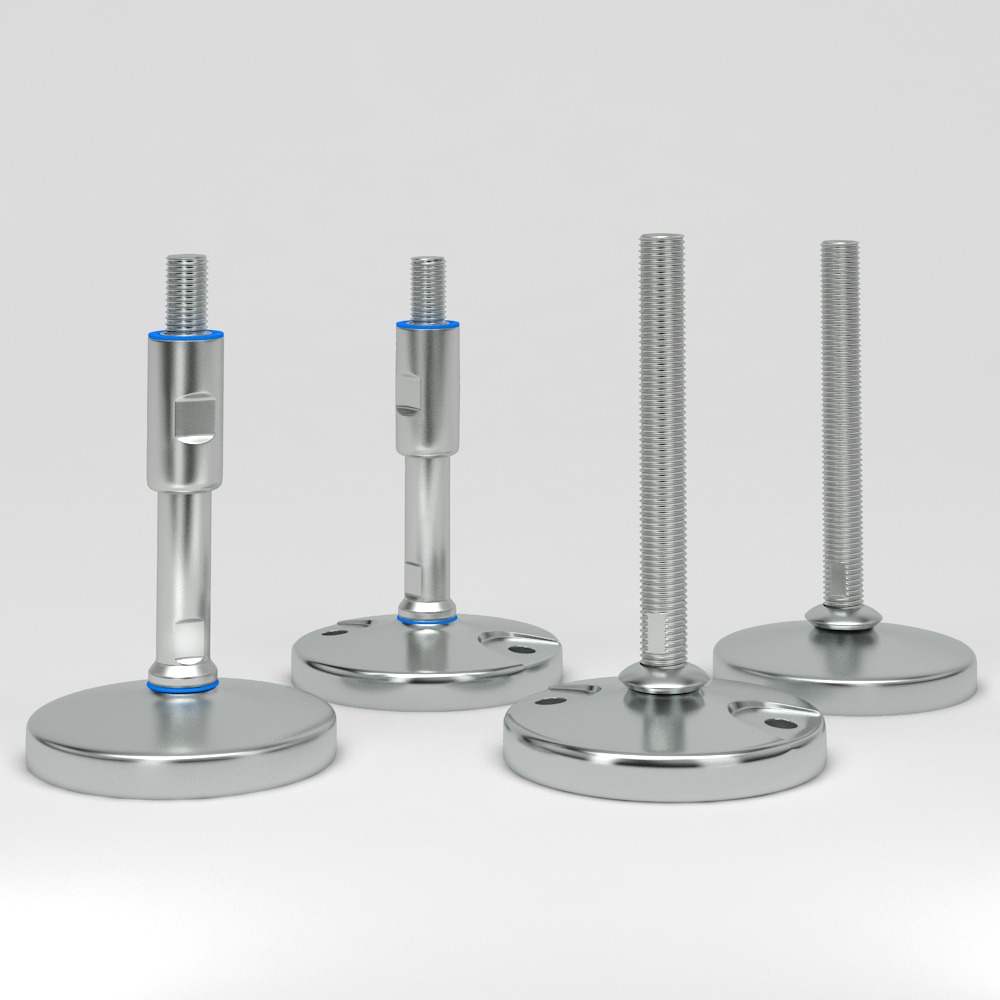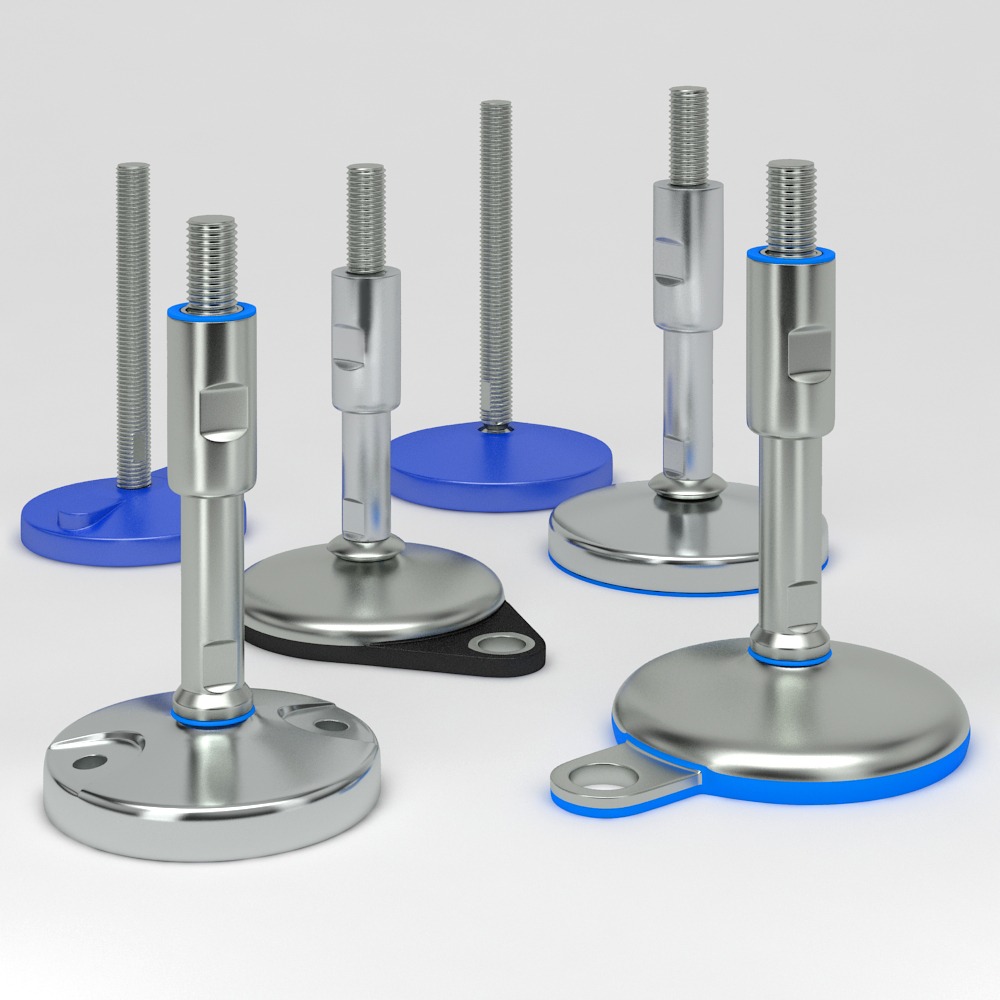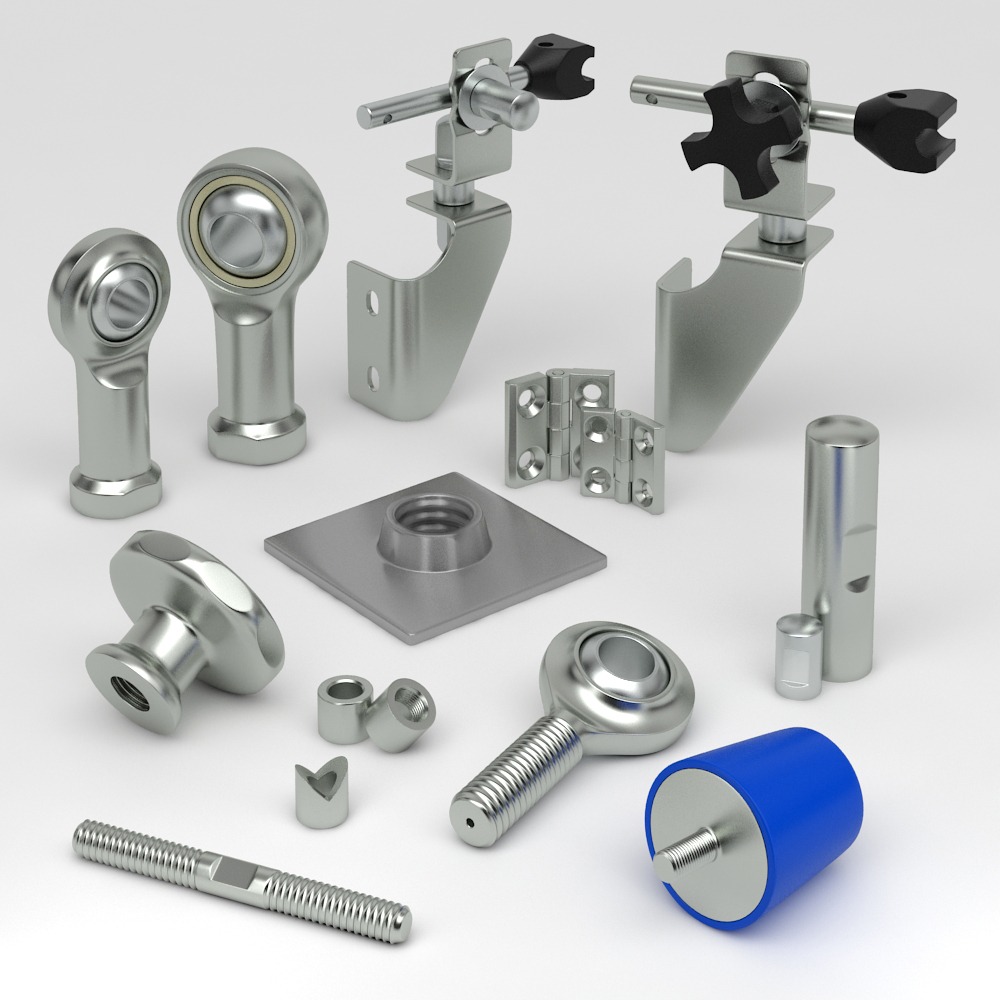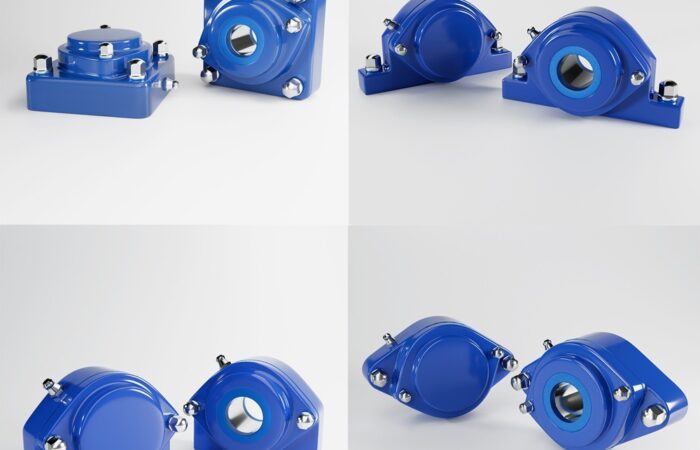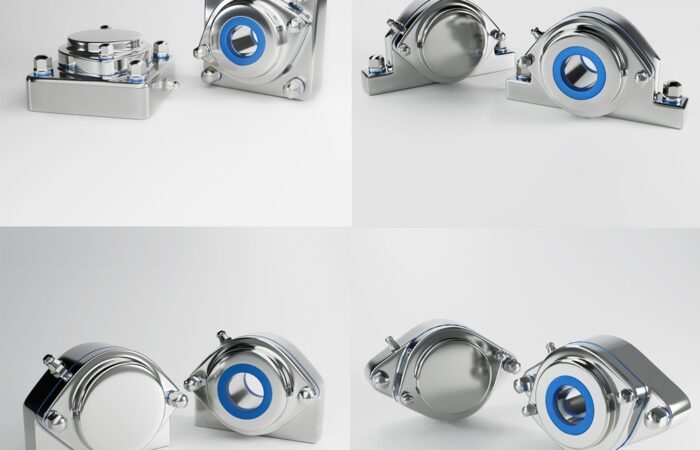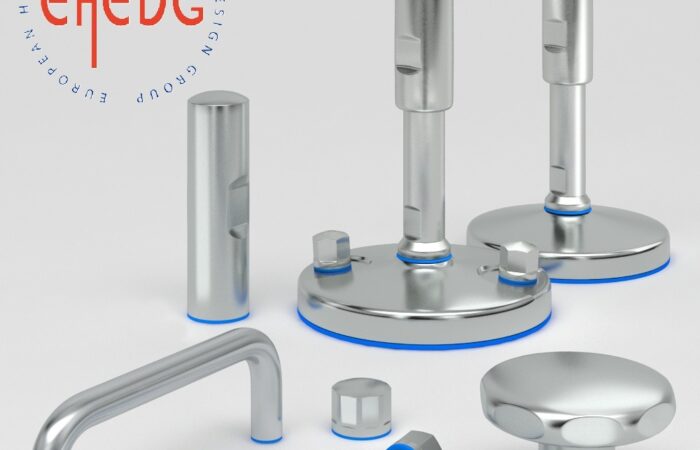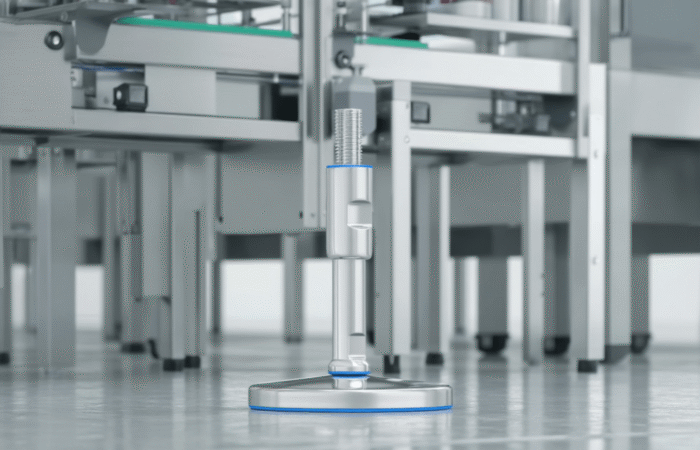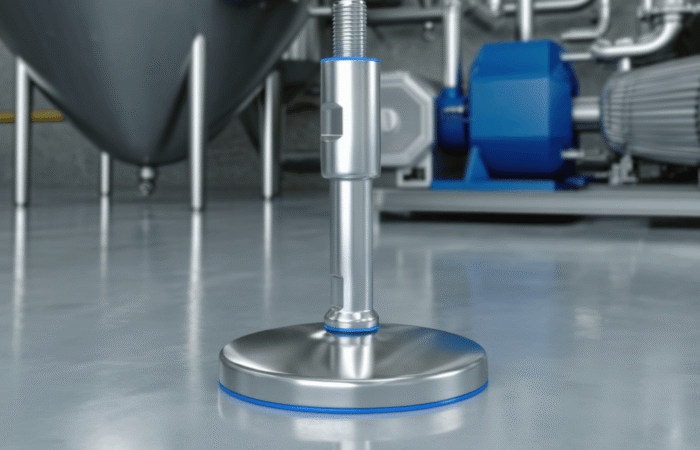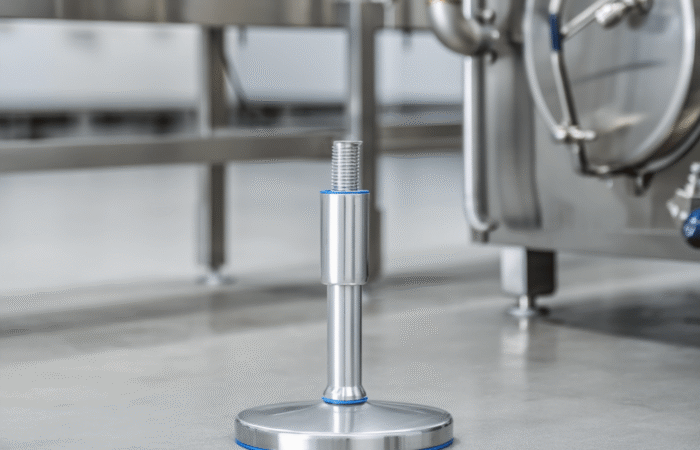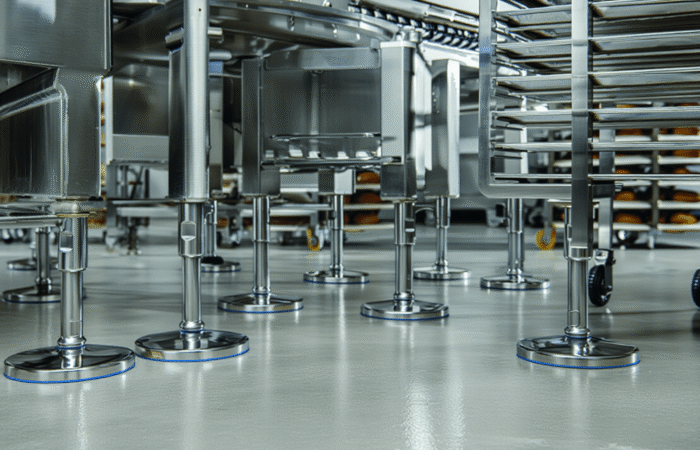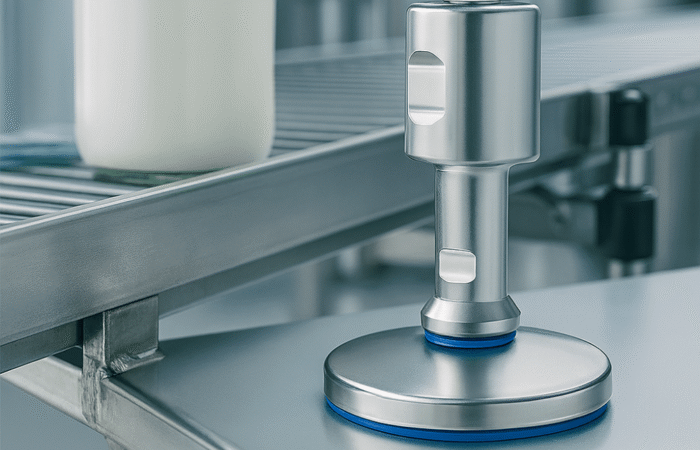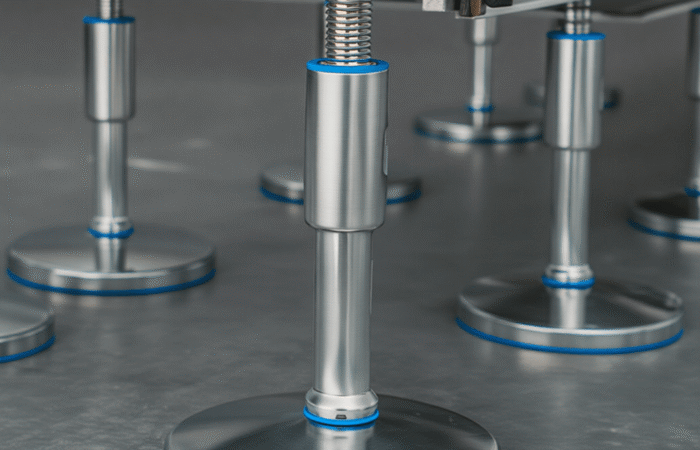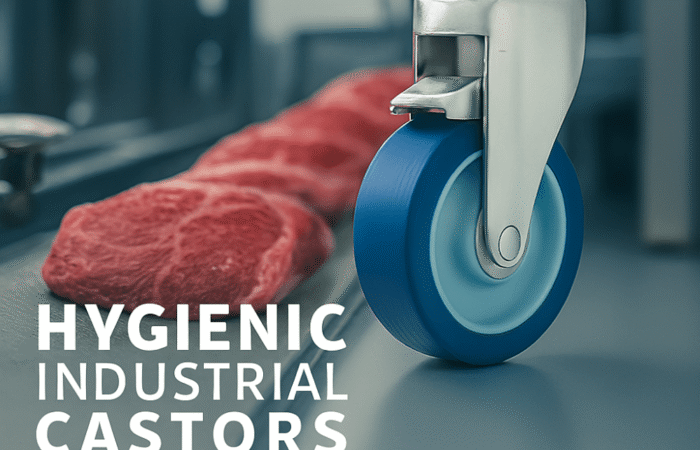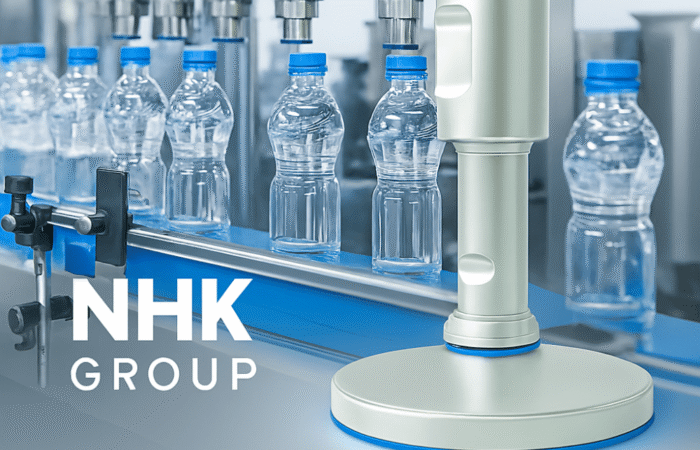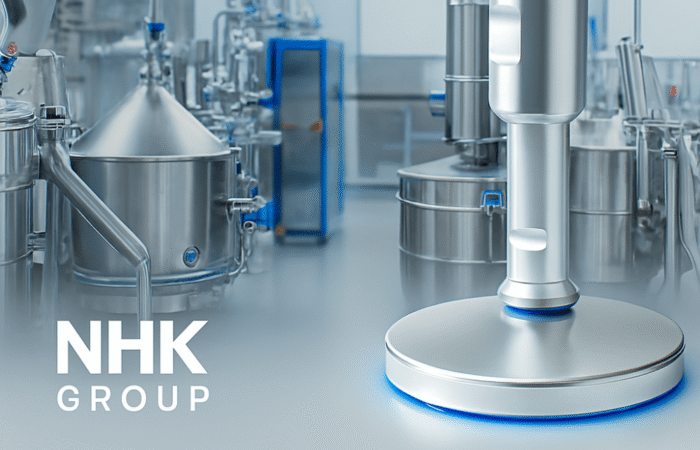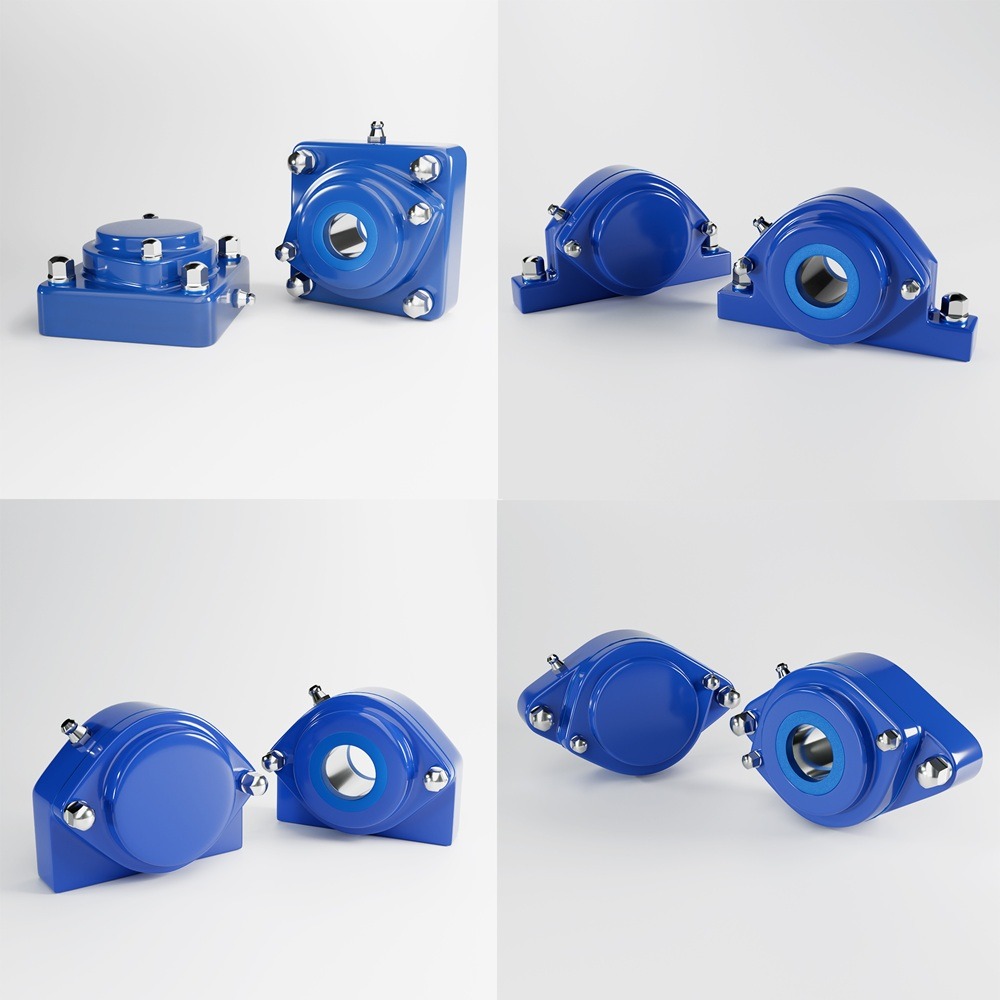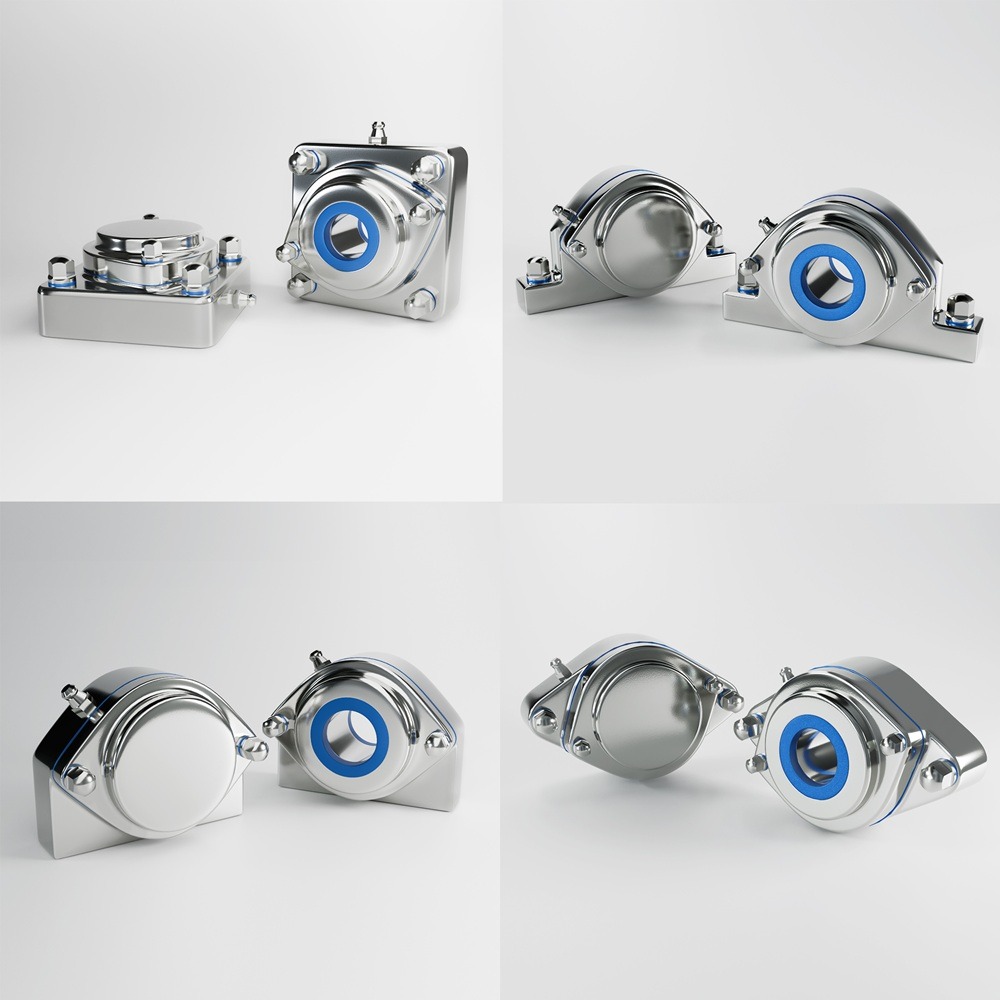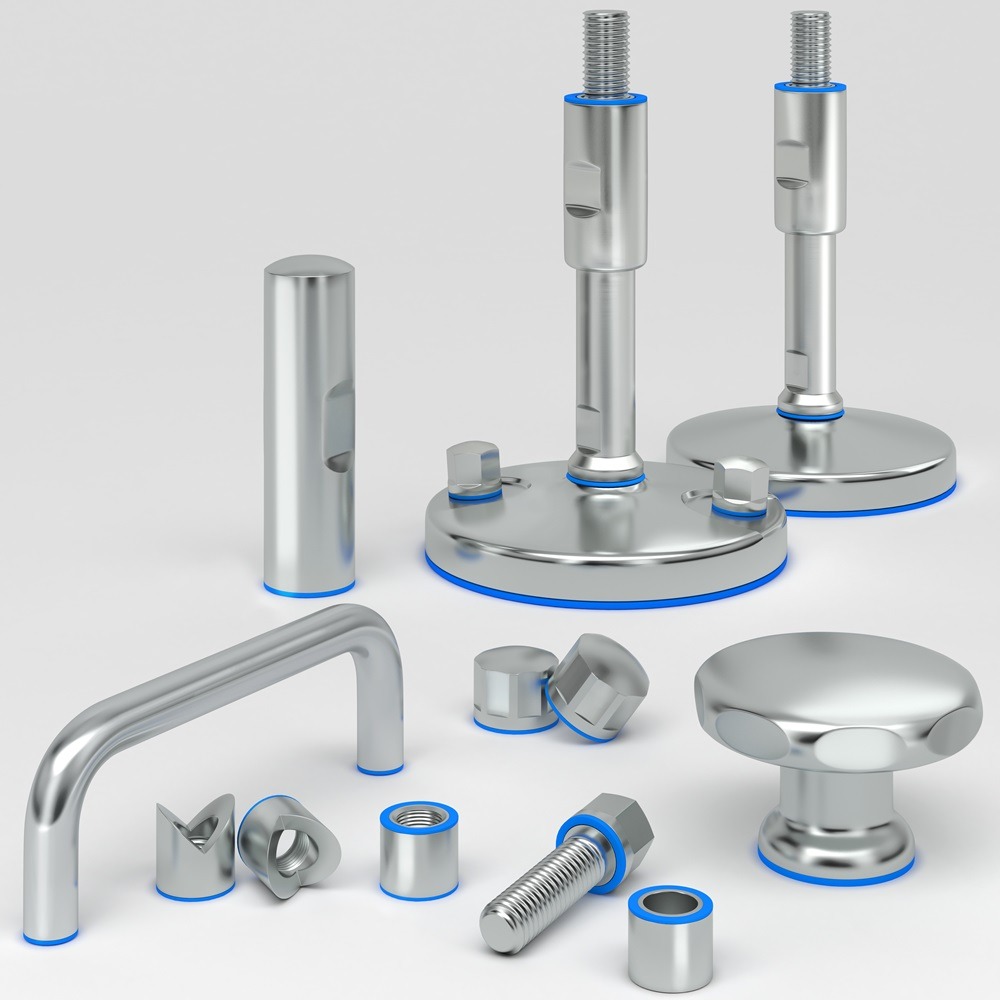
Reducing Water and Detergent Usage with Adjustable Feet
In today’s manufacturing and processing environments, sustainability is no longer optional. Industries across the globe are being called upon to minimize environmental impacts, conserve water, and reduce chemical usage without sacrificing performance or hygiene. One practical solution is the use of certified components and parts that contribute to reduced water and detergent use in the cleaning and maintenance of equipment. Specifically, adjustable feet with composite material base plates have emerged as a game-changer, offering a blend of durability, hygiene, and eco-friendliness. This article will explore how these certified components drive sustainable practices and why they are essential for modern industrial applications. Certified components are rigorously tested and approved to meet international standards, such as ISO, EHEDG, and FDA requirements. These certifications confirm that parts comply with strict guidelines for safety, hygiene, and efficiency, ensuring that they contribute positively to sustainable operations. Certified components, especially in industries like food processing, pharmaceuticals, and packaging, enable companies to meet stringent regulatory requirements while reducing the need for extensive cleaning protocols that rely on excessive water and detergents. Adjustable feet are used to stabilize machinery on uneven surfaces, reducing vibrations and ensuring optimal alignment. Traditionally, leveling feet were made with stainless steel or other metals, which, while durable, could be prone to corrosion in wet environments and often required more water and detergent for cleaning. Composite material base plates for adjustable feet offer an innovative alternative, combining the strength and durability of traditional materials with improved resistance to moisture and chemical exposure. The result is a product that not only reduces maintenance costs but also supports eco-friendly operations by minimizing water and detergent consumption during cleaning. The food and beverage industry has stringent hygiene requirements, making it a prime candidate for certified components that can withstand harsh cleaning conditions. Composite material adjustable feet not only maintain hygiene with less frequent cleaning but also help conserve water, crucial in a sector where large volumes are used daily. In pharmaceutical production, cleanliness and sanitation are paramount to prevent contamination. Adjustable feet with composite base plates offer a certified, easy-to-clean solution that meets rigorous hygiene standards while lowering water and detergent needs. This feature is especially important in cleanroom environments where resources must be used sparingly to maintain optimal operating conditions. Packaging and processing plants benefit from composite material base plates due to their resilience in high-moisture environments. By minimizing rust and corrosion, these adjustable feet reduce the risk of machine downtime and lower the environmental impact of maintenance routines. Moreover, their chemical resistance ensures that these industries can adhere to eco-friendly cleaning practices without compromising on operational efficiency. The United Nations’ Sustainable Development Goals (SDGs) highlight the importance of responsible production, water conservation, and environmental protection. Certified components like composite material adjustable feet align with these goals in several ways: When selecting adjustable feet for sustainable operations, it is crucial to choose certified products that meet both industry standards and environmental requirements. Consider the following factors: Adjustable feet with composite material base plates exemplify how certified components can reduce water and detergent usage, driving sustainable practices in various industries. By adopting these eco-friendly parts, companies in the food, pharmaceutical, packaging, and processing sectors can achieve their operational and environmental goals while supporting global sustainability initiatives. With their durability, hygiene benefits, and contribution to resource conservation, composite base adjustable feet are an ideal choice for businesses striving to build a greener future. Incorporating these certified components into machinery offers a practical solution for industries committed to sustainable growth, making a lasting impact on both their operations and the environment. Industrial machinery requires precision-engineered components that meet exacting standards for durability, safety, and performance. This comprehensive guide explores the essential machinery parts that drive modern manufacturing across food processing, packaging, and chemical industries. Understanding the difference between Bearing Housings and Flange Bearing Units is crucial for engineers and procurement professionals seeking to optimize equipment longevity. Pillow block bearings, also known as plummer blocks, are self-aligning bearing units that simplify installation and significantly reduce maintenance costs. These versatile components mount on machine frames and support rotating shafts with exceptional precision, ensuring smooth operation in demanding industrial environments. Flange bearing units offer a more compact alternative, featuring integrated flanges that enable direct mounting to flat surfaces without additional hardware. Both designs come in various materials, including stainless steel grades optimized for corrosive environments and food-grade applications where hygiene is paramount. The importance of material selection cannot be overstated in machinery design. 440 Stainless Steel and 420 grades offer distinctly different properties suited to specific applications and environmental conditions. The 440 stainless steel variant provides superior hardness and exceptional edge retention, making it ideal for cutting tools and high-wear applications requiring maximum durability. Meanwhile, 420 stainless steel offers better corrosion resistance and is preferred in food processing equipment where chemical exposure is common. Hygienic stainless steel components have become essential in food machinery, meeting EHEDG standards and facilitating rapid equipment cleaning required in modern food production facilities. Understanding ingress protection ratings is equally critical for machinery durability and operational reliability. IP67 rating ensures protection against dust and temporary water immersion, while IP68 rating provides complete dust protection and sustained water immersion capabilities for submerged operations. The IP69K standard represents the highest protection level, specifically designed for high-pressure wash-down environments found in industrial food processing facilities. These ratings define how effectively machinery components withstand environmental challenges and maintain performance. Modern industrial facilities increasingly demand equipment that combines high performance with ease of maintenance and sanitation. The choice between different bearing types depends on operational requirements, environmental conditions, and budget constraints. Proper component selection ensures extended equipment lifespan, reduced downtime, and improved operational efficiency.Certified Components and Parts for Sustainable Growth: Reducing Water and Detergent Usage with Adjustable Feet Featuring Composite Material Base Plates
Download our catalogue here
The Role of Certified Components in Sustainability
Adjustable Feet with Composite Material Base Plates: An Overview
Key Benefits of Composite Material Base Plates for Adjustable Feet
1. Enhanced Hygiene and Reduced Cleaning Requirements
2. Chemical Resistance and Longevity
3. Water Conservation and Cost Savings
4. Lightweight and Easy Installation
5. Reduced Environmental Impact with Less Detergent Use
Case Studies: Industries Benefiting from Certified Composite Adjustable Feet
Food and Beverage Industry
Pharmaceutical Industry
Packaging and Processing Industries
How Certified Components Drive Sustainable Development Goals (SDGs)
Choosing the Right Adjustable Feet with Composite Base Plates
Adjustable feet with composite material base plate
Check out our wide range of certified standard components
Contact
Understanding Machinery Components & Protection Standards
